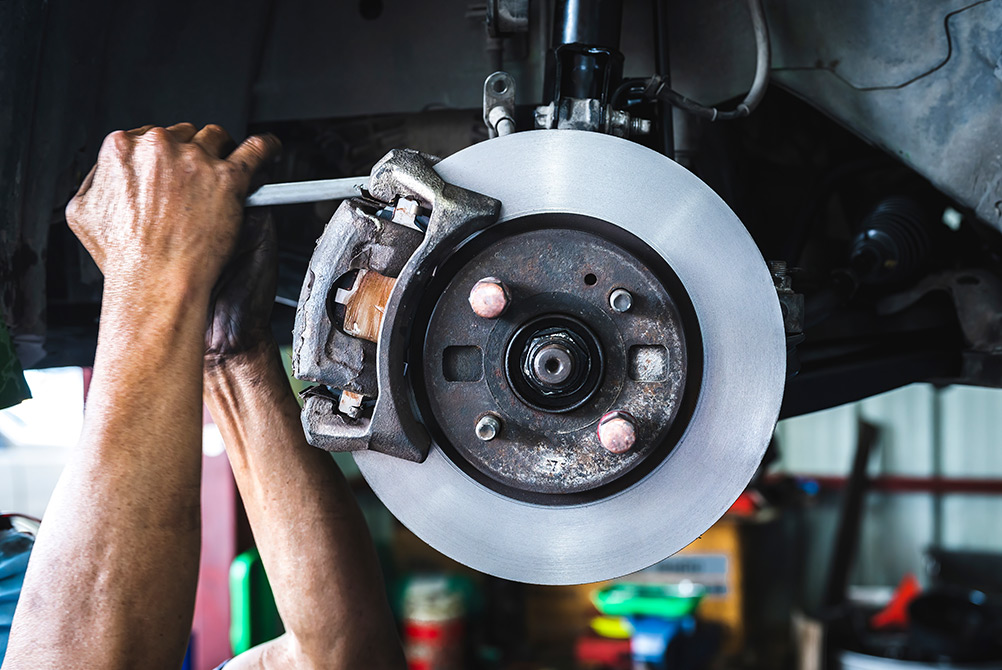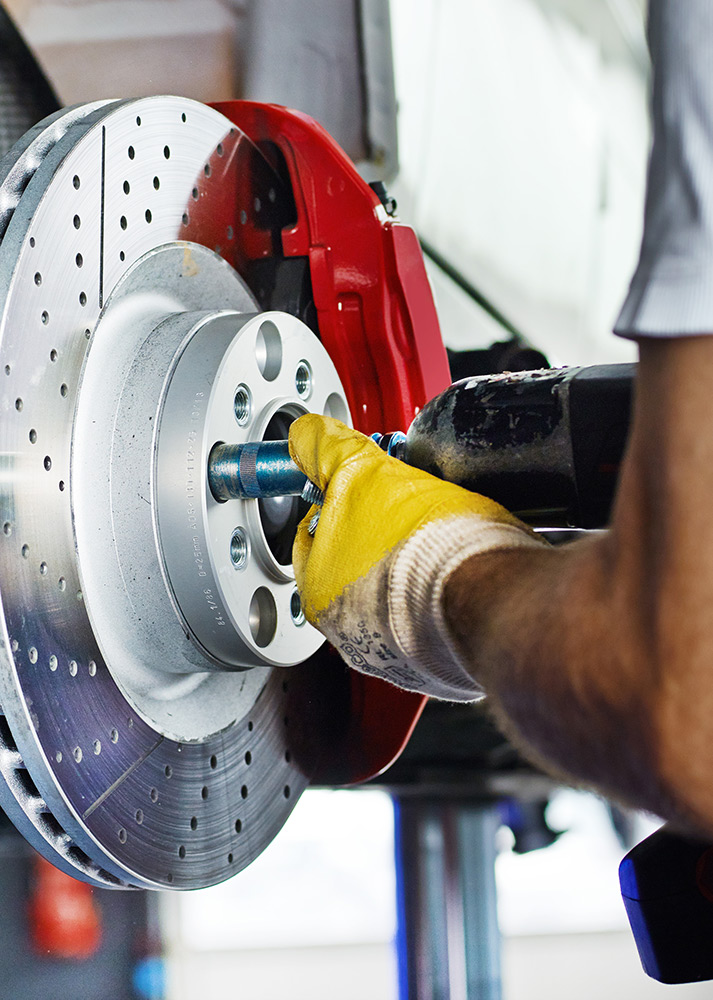
Keeping your car and you safe
We can check the brake discs, pipes, pads, and mechanism, ensuring that everything is working perfectly, and that your vehicle is safe and reliable in that aspect. We can replace any worn parts as needed.
Maintaining your brakes is of course, absolutely vital for vehicle safety. With our vigilant and experienced team of mechanics, you will be fully informed about the condition of your brakes, their expected expiry time, and whether they are suitable to drive with. With brakes it is often a case that a stitch in time saves nine. Replacing the pads before they wear down to the metal will prevent damage to the discs, for example, which are much more expensive to replace.
Are your car brakes in working order?
Here are some common indicators that it might be time to schedule a car brake repair or replacement:
Grinding
If you hear a grinding noise when applying the brakes, it could mean that the brake pad has worn down to the metal calliper. Prompt replacement of these pads is essential to prevent damage to the brake disc. If the brakes squeak that is also often a sign of worn brake pads.
Juddering
The juddering of brakes when applied often indicates that the brake disc has warped due to heat.
Pulling to the side
If the vehicle pulls to one side when braking it is often caused by a sticking hydraulic or mechanical component.
Squeaking
There are a number of reasons that brakes could be squeaking, such as worn brake pads. However, it is indicative of an issue we recommend having a free brake check.
Sponginess
A loss of braking efficiency during heavy braking or on long descents may indicate issues with brake fluid flow through the system.
Stiff brake pedal
A high, hard brake pedal can be caused by a variety of things including a missing serpentine belt or an ill-functioning electric pump.
Rear wheels locking upon braking
Rear wheels locking upon braking could be a result of a malfunctioning proportional valve, leading to unequal fluid pressure distribution in the brake system.

Frequently Asked Questions
How often should I have brakes replaced?
With so many different driving patterns and styles, where some drivers use engine braking, and drive smoothly, while others drive in built up areas and rely solely on brakes to slow down, the life span of brake pads can be between 20,000 and 60,000 miles. The pads should be replaced if they have worn down to 3mm or lower.
How often should I replace brake fluid?
You should replace brake fluid every two years. This is crucial to ensure reliable braking, especially under high temperatures and hard braking, when you need it most!
How much does brake fluid change cost?
Brake fluid replacement starts from £30
How long do brake discs last?
Generally, brake discs have a lifespan of around 30,000-70,000 miles before they need replacing. However, like many components in your car, this may depend on usage, your driving style and how often you have a car service.
What is included in a brake fluid change?
Our trained brake technicians will use a pressure bleeder to perform the brake fluid change – this pumps a constant supply of new fluid under pressure into the brake fluid reservoir to avoid air getting into the hydraulic system. Starting with the brake in most need of attention (the most contaminated) and then moving around the vehicle in a sequence depending on the braking system fitted, the old fluid is then bled out at the bleed nipple on each brake, until clean fluid is seen in the bleed bottle. The new fluid pushes out the old fluid, which is then disposed of. On most modern vehicle the use of a diagnostic tool is also required, to enable a bleed function on the ABS controller, to ensure that all the old fluid is purged from the different pathways and valves within the ABS pump. At Kwik Fit, we use a high specification DOT4+ fluid that has been designed to meet the demands of modern electronic stability control systems.
Why is brake fluid important?
Brake fluid plays a crucial role in your braking system as it transfers the force created when a driver presses the brake pedal directly onto the wheel hub. Heat generated under braking, especially under heavier braking or prolonged braking, may affect the brake fluid which can only work if it is liquid and not so hot that it has become vapour. Therefore, the boiling point that your brake fluid can achieve is critical to efficient braking as temperatures above the boiling point form vapour bubbles in the system, potentially resulting in brake failure. In addition, the brake fluid serves as a lubricant of all movable parts and prevents corrosion. It has to be compatible with rubber seals and hoses thus allowing braking systems to achieve long service and optimal performance.
